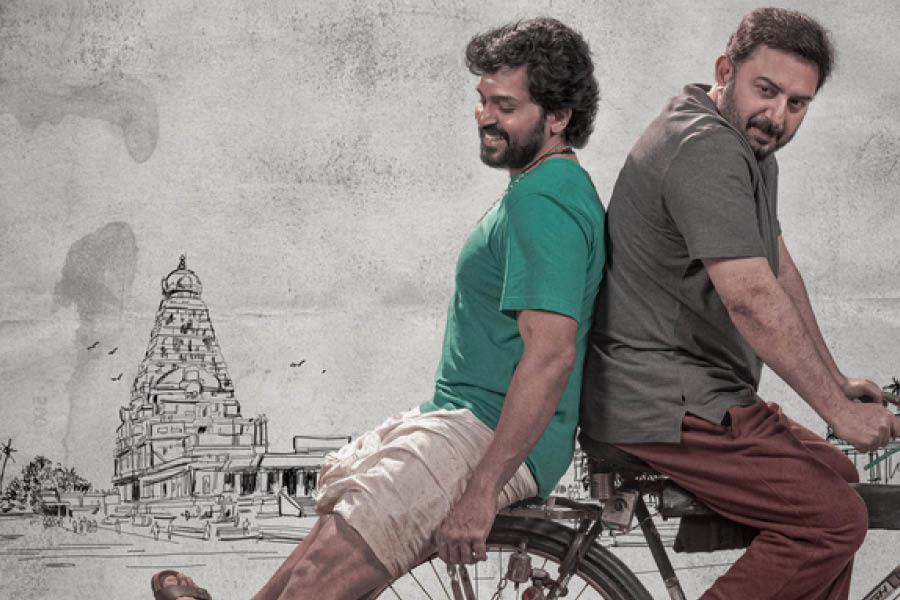At a time when mainstream filmmakers often rely on grand visuals and special effects to capture audiences, C. Premkumar’s Meiyazhagan emerges as a breath of fresh air. Following his acclaimed 2018 debut, ’96, Premkumar continues to explore the intricacies of human emotions in his sophomore directorial. This time through the lens of nostalgia, kinship, and the enduring quest for identity.
Meiyazhagan opens in 1996, introducing us to a teenaged Arulmozhi Varman, affectionately known as Arul (Saran Shakthi), who must leave his hometown Thanjavur after his father lost their ancestral home in a property dispute. Fast forward to 2018 as a grown-up Arul (Arvind Swami) returns to his hometown for his cousin’s wedding, a journey that promises closure but unfolds as an exploration of his roots and relationships instead. His encounter with a charming but nameless relative (Karthi) adds an unexpected layer to his trip, igniting both curiosity and warmth.
While Meiyazhagan shares thematic DNA with ’96 — notably its unfolding within a single night and the rich interplay of flashbacks — this narrative delves deeper into the nuances of human emotions. It ventures beyond the confines of unrequited love, embracing a broader examination of familial bonds and personal growth. Karthi’s character, who, while seemingly a supporting player, infuses the story with an energy that propels Arul towards self-discovery.
Karthi’s performance as the effervescent relative is noteworthy; he embodies a character that, while initially appearing to be the archetypal village fool with a heart of gold, reveals depths of sincerity and wisdom. His character serves as a catalyst for Arul, pushing him to confront the remnants of his past. Karthi’s ability to blend earnestness with moments of levity enriches the film, while Arvind Swami’s Arul stands as a contemplative counterpoint. The chemistry between the two actors is palpable, bringing out nuanced performances that reflect their respective character arcs beautifully.
Premkumar’s direction is marked by a meticulous attention to detail, particularly in the film’s pacing and visual storytelling. The cinematography by Mahendran Jayaraju paints Thanjavur in warm, inviting hues, capturing the essence of its bylanes and the beauty of nighttime solitude. Each frame feels like a carefully composed photograph, echoing Premkumar’s background as a cinematographer.
One of the film’s standout moments occurs when Arul presents his sister with a box of jewellery at her wedding reception and she insists on wearing them on the spot. The siblings share a profound moment of vulnerability as Arul helps Bhuvana wear the anklet, transforming a mundane act into a beautifully emotional experience. This is where Premkumar excels; he captures the slow unravelling of human connection, allowing the audience to feel the weight of the moment alongside the characters. The collective tears of the witnesses become a mirror for the viewers, inviting us into the shared space of love and familial ties.
Yet, Meiyazhagan is not without its challenges. The film’s introspective nature may prove difficult for viewers accustomed to a more plot-driven approach. While the sheer stillness of the conversational flow can feel like a therapy session, it demands patience as it wades through layers of emotional complexity.
The film ultimately transcends conventional storytelling, focusing on the simple yet profound moments that constitute human existence. In its exploration of trauma and forgiveness, Meiyazhagan urges audiences to reflect on their own experiences of love, loss, and the elusive concept of home. As the credits roll, we are left with an indelible sense of catharsis, a reminder of the beauty in vulnerability and the importance of connection.
Meiyazhagan is streaming on Netflix.










